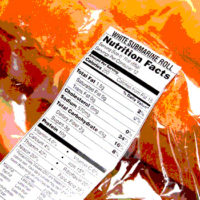With the continued threat and reality of foodborne illnesses and product recalls, food safety remains a priority issue for consumers and food chain parties. Each year, roughly one in six people in the U.S. become ill from eating contaminated food.[1] Furthermore, food withdrawals, rejections and recalls cost the food industry $7 billion annually, with the majority of these costs coming from internal reworking, commodity loss, inventory replacement, removing goods from shelves, lost sales and public relations and reputation or customer confidence repair.[2]
While efforts are being made to further protect the nation’s food supply, there is still more that can be done. Participants in the food supply-chain like growers, processors and distributors, want to do everything possible to avoid contaminated food reaching consumers. However, many factors beyond the control of the food supply chain members cause food safety violations. In spite of advancements in food science and technology, the number of food recalls has increased from 100 per year in the 1990s to about 300 recalls per year in the 2000s.
In January 2011, President Barack Obama signed the Food Safety Modernization Act (FSMA) into law, marking the first major reform of the U.S. Food and Drug Administration (FDA) in 70 years. The bill increases FDA’s authority over food recalls, enables FDA to require food producers to have safety plans and enhances FDA’s ability to improve the safety of imported foods. Once fully realized, FSMA will install greater accountability for handlers along the entire food supply chain to prevent catastrophic harm to the health of consumers and avoid food safety related disruption and economic loss to the food industry. Additionally, among FSMA’s many provisions, there now is a greater emphasis on track-and-trace capabilities.
Even though FSMA has seen delays, companies can and should move forward in implementing track-and-trace technology with an enterprise resource planning (ERP) system to enable regulatory compliance and make product transparency a business asset rather than a business liability. A provision of FSMA requires companies to enhance their track and trace capabilities, rapidly tracing back from where a product was received and tracking forward to where it was sent. This will create massive amounts of information that companies will have to manage and integrate to provide complete traceability across the supply chain.
While FSMA does not necessarily require the brand owner or manufacturer to maintain records about its upstream and downstream partners, it is highly recommended that they do. Brand value, once eroded, is difficult to rebuild. Many food companies are investing significant money and effort to build awareness of their brands, which can pay off amply in highly competitive markets. The negative media image generated by recall coverage however, can turn an established brand asset into a liability. Nervous consumers can cause distributors and brokers to quickly abandon tainted products in the channel.
An ERP system allows companies to manage and mitigate food safety risks. For example, by tracking and storing information about a food product from the beginning, companies are able to access and syndicate valuable information throughout their supply chain in real time. ERP systems also help manage the complexity of the vast amounts of information and data required to track food as it moves from field-to-fork. With any sort of issue that arises, having an ERP system in place helps officials examine the data, pinpoint the problem(s), and, ideally, work through a solution before it escalates into a crisis.
itelligence’s food producer & distributor customers have real time insight and best in class supply chain processes to identify, react and remediate product recall issues. For more than 20 years, itelligence has developed and provided industry leadership and worked closely with SAP to ensure software and technology advancements address the evolving requirements around food safety and the Produce Traceability initiative. Robust SAP ERP solutions like itelligence’s it. CPG and it.trade come preconfigured to comply with government requirements, with built in quality-management, supply chain optimization and food-safety capabilities.
Other key components include tracking and tracing, as well as automated recall procedures. With itelligence’s rapid deployment methodology, companies can recognize value in weeks. This quick turnaround makes it possible for an organization to immediately place itself in compliance with the new bill without having to bring in additional full-time staff to help develop a clipboard-based manual safety program.The need for accountability and quick response in the food supply chain is great. Real-time visibility and transparency provide consumers and food safety officials with answers to questions that help put the wheels in motion to solve food issues quickly. Track-and-trace is one example of how businesses can be empowered to handle responsibilities that are part of today’s stronger food safety enforcement efforts. This technology provides safety measures that can help minimize the impact of contaminated food on consumers’ health and trust, while protecting the reputation and bottom lines of properly equipped businesses.
Eric Jones is a consumer products industry principal at itelligence.
References
1. www.cdc.gov/vitalsigns/FoodSafety/?s_cid=vitalsigns_070#Introduction.
2. www.foodsafetynews.com/2012/09/the-roi-of-food-safety-and-quality-assurance-technology-solutions/#.UFdeVbJlQik.



